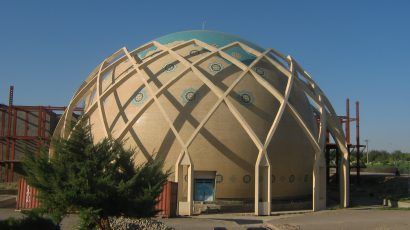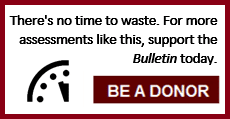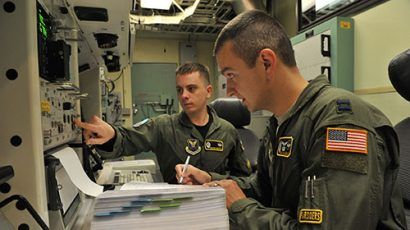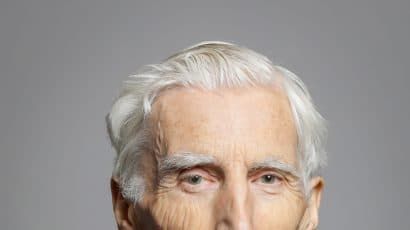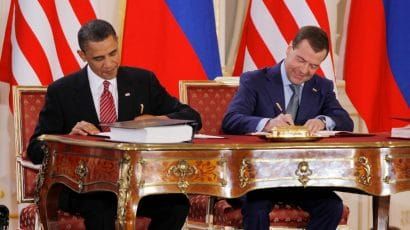Search results for nuclear terrorism
“No Jack, that is not how a dirty bomb works, they’d all be dead!” My wife looked over at me in parts alarm and exasperation as I complained, as I so often do, about scientific inaccuracies on TV. Mostly, I let them pass. I love some good bingeable entertainment as much as the next person—but … Continued
Will anti-money laundering reform in Iran matter?
Even if Tehran is able to bring its anti-money laundering rules and regulations in line with FATF standards by the October deadline, there is no guarantee that it will be enough to counteract the threat of US secondary sanctions.
Hands across the lab: Will the US and Iran cooperate on science?
Behind headlines about disagreements, Tehran is increasingly embracing technological collaboration with the outside world.
Banning the production of highly enriched uranium
A report from the International Panel on Fissile Materials (IPFM) says it is feasible for all production of highly enriched uranium—for military and civilian purposes—to be banned
On tickling the dragon’s tail
The moral restraints that prevent Armageddon are flimsier than one might think, because humans have a self-destructive defect. They like to tickle the dragon's tail.
The divided front negotiating with Iran
They may say they’re united, but the members of the P5+1 have divergent interests
A year later: Responding to problems in the ICBM force
An inside look at the response to the cheating scandal in the missile force.
The money behind the Islamic State
With friends like Saudi Arabia, Kuwait and the Gulf states funding jihadi extremists in Syria and Iraq, does the United States need enemies?
Thorium: the wonder fuel that wasn’t
The Energy Department appears to have lost track of 96 kilograms of uranium 233, a fissile material made from thorium that can be fashioned into a bomb, and wants to put nearly a ton of left-over fissile materials in a government landfill, in apparent violation of international standards.
Robot to the rescue
Inside DARPA’s competition to build a better humanitarian-assistance and disaster-relief robot.
Nonproliferation in a time of austerity
Since the early 1990s, the nonproliferation community has obsessed over the annual appropriations to programs at the US defense, state, and energy departments that are designed to keep weapons of mass destruction (WMD) out of the wrong hands. While the budgets of individual programs have fluctuated, the unmistakable trend in US nonproliferation spending was upward. Program managers could generally count on this year's budget being higher than last year's, and next year's being higher still.
On the brink of the abyss in the Urals
The escalation of the crisis in relations between the United States and Soviet Union in October 1962 had a most direct impact on the lives of the staff officers for the Kirov rocket corps, named after the city nearest its bases in the Ural Mountains. On October 23, I received orders to go to one of the two divisions of our corps in which intercontinental ballistic missiles (ICBM) of the 8K64 type -- SS-7 in American terminology -- had recently been put on combat duty.
Artificial intelligence: challenges and controversies for US national security
The United States and other countries must consider the possible impact of AI on their armed forces and their preparedness for war fighting or deterrence. Military theorists, strategic planners, scientists, and political leaders will face at least seven different challenges in anticipating the directions in which the interface between human and machine will move in the next few decades.
No end of a lesson on the “big stick”
A critique of The Big Stick: The Limits of Soft Power and the Necessity of Military Force, by Eliot A. Cohen.
Buckle up: We are in for a bumpy ride. An interview with Royal Astronomer Martin Rees
In this interview with Bulletin CEO Rachel Bronson, Royal Astronomer Martin Rees explains why he believes the 21st century will be a crucial test of humanity’s ability to manage a wide range of existential threats.
How likely is an existential catastrophe?
You’re far more likely to die in an existential catastrophe than you think. And the risk of such a catastrophe is growing.
President Barack Obama, New START and reducing carbon emissions
Virtual Tour: Turn Back the Clock “] In January 2010, the Doomsday Clock turned back one full minute. “We are poised to bend the arc of history toward a world free of nuclear weapons,” declared the Bulletin. This optimism stemmed from progress made in 2009 on two fronts: reductions in U.S. and Russian nuclear stockpiles … Continued
Albert Einstein, Leó Szilárd and the letter that led to Manhattan Project
Virtual Tour: Turn Back the Clock “] In August of 1939, Albert Einstein sent a letter to U.S. President Franklin Delano Roosevelt, advising him that the process of nuclear fission could potentially be used to create a powerful atomic bomb. The letter, often called the Einstein-Szilárd letter, was written by physicist Leó Szilárd and Einstein … Continued
Acciones, no palabras
En la primera ronda, mis colegas y yo concordamos ampliamente en que la detonación nuclear, ya sea deliberada o accidental, afectaría a Estados e individuos de manera muy seria, y este daño no se detendría en las fronteras. La historia lo corrobora: las detonaciones en el pasado han traído consecuencias desastrosas, tanto de manera inmediata, … Continued
Confidence, trust, and balance
The three essays published in this Roundtable so far have all affirmed the need for responsible control of commerce in nuclear technology and goods. All the authors would like for nuclear commerce to flow smoothly toward countries with new or emerging nuclear power sectors, and all would like to minimize circumstances that impede that flow. … Continued


